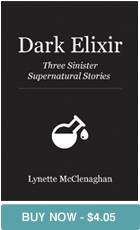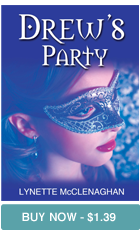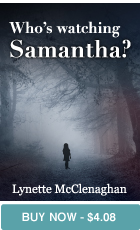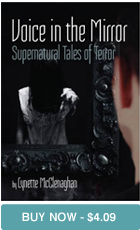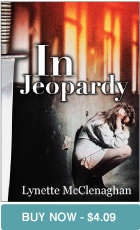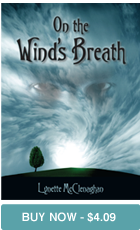 I recently read The Diary of a Drug Fiend, written in 1922 by the infamous Aleister Crowley. Although it is not strictly a horror story, it is a horrifying story, and Crowley’s reputation as an occultist means that it may be of interest to other readers here. Not to mention the fact that Crowley is an excellent writer and the story is drawn from his own experiences. Crowley became a heroin and cocaine addict in the early twenties and remained so for the rest of his life. However, the book is not a moralistic tale about drugs and how bad they are. Rather, Crowley examines addiction as a form of thwarted spiritual search. The suffering endured by the main protagonists becomes a kind of extended ‘dark night of the soul’, where they are forced to confront the best and worst of themselves before emerging redeemed at the end of the story. Drugs per se are neither good nor evil, Crowley suggests, but rather, it is our attitude to them and how we use them in our lives, which matters. It is a contentious viewpoint, not one that I would endorse.
I recently read The Diary of a Drug Fiend, written in 1922 by the infamous Aleister Crowley. Although it is not strictly a horror story, it is a horrifying story, and Crowley’s reputation as an occultist means that it may be of interest to other readers here. Not to mention the fact that Crowley is an excellent writer and the story is drawn from his own experiences. Crowley became a heroin and cocaine addict in the early twenties and remained so for the rest of his life. However, the book is not a moralistic tale about drugs and how bad they are. Rather, Crowley examines addiction as a form of thwarted spiritual search. The suffering endured by the main protagonists becomes a kind of extended ‘dark night of the soul’, where they are forced to confront the best and worst of themselves before emerging redeemed at the end of the story. Drugs per se are neither good nor evil, Crowley suggests, but rather, it is our attitude to them and how we use them in our lives, which matters. It is a contentious viewpoint, not one that I would endorse.
The story centres on Sir Peter Pendragon, a wealthy Great War flying hero and his wife, Louise (Lou) Laleham. The story depicts in dreadful detail the couple’s introduction to cocaine, then heroin and the awful effects this has on their lives as they degenerate into addiction. The novel, in this, is truly a horror story: “…before I reached the street I realised with desolate disgust and despair the degree of my degradation, of my damnation; and I hugged desperately my hideous perverse pride in my own frightful fate, and rejoiced as the horrible hunger for heroin made itself known once more, gnawing at my entrails.” A good literary analogy would be with Stevenson’s Dr Jekyll and Mr Hyde, a book which also portrays harrowing psychological and existential experiences.
Along the way the author provides insights into the mind and behaviour of an addict: “We lie about and look at each other; but we can’t touch, the skin is too painful”. Pendragon is in part based on Crowley himself. The book also presents some of Crowley’s unique views, so that as we follow Laleham and Pendragon we are also offered Crowley’s thoughts on a diverse range of topics. “Sympathy with universal suffering brings one into a certain sombre serenity.” The book contains many reflections of this kind, not merely to create sympathy for the characters but to see their struggles as emblematic of humanity’s spiritual struggles.
The other main character is the magician, King Lamus, who keeps appearing throughout the story, attempting to guide the wayward couple to spiritual fulfilment. He, too, is based on Crowley.
The supernatural element in the story is subtly used. Crowley sees this as a natural part of our lives and our thinking about existence, so is not there to frighten the reader but to encourage the reader’s philosophical thinking: “The Devil, of course, needs a human interpreter if he is to communicate with this world, and so he took possession of Peter”.
It also has to be said that Crowley can be wickedly funny – there are some very humorous comments in the book, and that he is a terrific writer of memorable phrases: “The first of these women was a fat, bold, red-headed slut”. Many scenes in the novel are powerful and dramatic and Crowley’s imagery is often startling. Here he describes Pendragon’s impression of Lou’s hair: “It reminded me of the armature of a dynamo”.
The Diary of a Drug Fiend is highly recommended. It is an intense and gripping read. It also shows, as I try to do in my own writing, that horror is not always frights or gore, but also lurks within the mind, our fellow humans and in the chaotic universe around us.


 I recently read The Diary of a Drug Fiend, written in 1922 by the infamous Aleister Crowley. Although it is not strictly a horror story, it is a horrifying story, and Crowley’s reputation as an occultist means that it may be of interest to other readers here. Not to mention the fact that Crowley is an excellent writer and the story is drawn from his own experiences. Crowley became a heroin and cocaine addict in the early twenties and remained so for the rest of his life. However, the book is not a moralistic tale about drugs and how bad they are. Rather, Crowley examines addiction as a form of thwarted spiritual search. The suffering endured by the main protagonists becomes a kind of extended ‘dark night of the soul’, where they are forced to confront the best and worst of themselves before emerging redeemed at the end of the story. Drugs per se are neither good nor evil, Crowley suggests, but rather, it is our attitude to them and how we use them in our lives, which matters. It is a contentious viewpoint, not one that I would endorse.
I recently read The Diary of a Drug Fiend, written in 1922 by the infamous Aleister Crowley. Although it is not strictly a horror story, it is a horrifying story, and Crowley’s reputation as an occultist means that it may be of interest to other readers here. Not to mention the fact that Crowley is an excellent writer and the story is drawn from his own experiences. Crowley became a heroin and cocaine addict in the early twenties and remained so for the rest of his life. However, the book is not a moralistic tale about drugs and how bad they are. Rather, Crowley examines addiction as a form of thwarted spiritual search. The suffering endured by the main protagonists becomes a kind of extended ‘dark night of the soul’, where they are forced to confront the best and worst of themselves before emerging redeemed at the end of the story. Drugs per se are neither good nor evil, Crowley suggests, but rather, it is our attitude to them and how we use them in our lives, which matters. It is a contentious viewpoint, not one that I would endorse.
